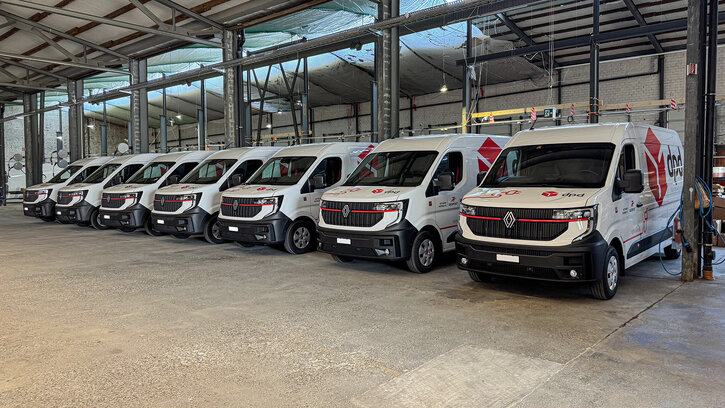As part of its sustainability efforts, DPD Switzerland has launched a pilot project with autoSense, an innovator in charging solutions for electric vehicles (EVs) and fleet management, to trial intelligent charging of its EVs.
Funded by LadenPunkt, the project will test autoSense’s chargeSmart technology, which dynamically adjusts the charging of electric vehicles to the energy market, the availability of renewable energy and the operational times of the vehicles. Charging processes are thus automated to occur when electricity prices are low, making fleet operations more economical and grid friendly.
Additionally, the battery capacities of DPD’s commercial vehicles will be made available to Swissgrid for balancing energy. This not only leads to additional revenues but also helps stabilize the Swiss power grid and thus promotes the integration of renewable energies, according to autoSense.
“We are excited to implement this groundbreaking pilot project together with DPD Switzerland,” said Jaap Vossen, CEO of autoSense. “The electrification of fleets is a game-changer for sustainable mobility. With chargeSmart, we create a solution that combines efficiency and sustainability and makes a tangible contribution to the energy transition. The support from LadenPunkt confirms the relevance and innovative strength of our technology.”
The pilot project will run until the end of 2025 and will provide valuable insights for the entire industry. The results will directly contribute to the further development of chargeSmart and thus accelerate the electrification of Swiss mobility.
“With the pilot project together with autoSense and LadenPunkt, we are consistently taking new paths to achieve our climate goals even faster,” commented Ville Heimgartner, senior innovation project and sustainability manager at DPD Switzerland. “Intelligent charging management is the key to scaling our electric fleet. We are looking forward to the results of this innovative test.”
In related news, Wincanton is adding 24 electric-powered trucks to its logistics fleet this summer, as part of its efforts to reach net zero emissions by 2040


